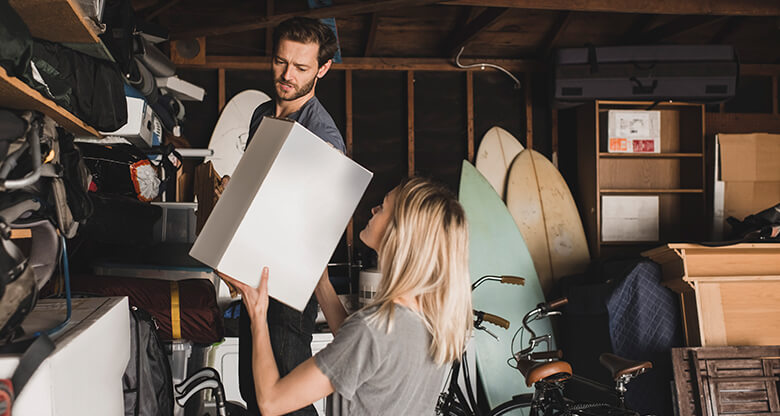Tropical cyclones occur along the coastlines of Australia – bringing with them destructive winds, storm surges, and even flooding. When a cyclone strikes, the weather conditions can intensify quickly, so it makes sense to be prepared in advance.
If you’re living in a cyclone-prone area, here are five tips to help make sure you’re ready well before cyclone season begins.
1. Get your home ready
Maintaining your home regularly by clearing guttering of leaves and debris, trimming branches, and repairing any loose tiles can help minimise potential cyclone damage to your home. The QLD Government 'Get Ready' site includes a home maintenance checklist and preparation tips.
2. Take steps to minimise damage
When a cyclone is imminent, you might want to fix shutters or metal screens across your glass doors and windows to prevent breakage as suggested by the QLD Fire & Emergency Services.
To help protect your car from cyclone damage, it’s a good idea to move your car undercover and/or park away from trees. Secure large items such as boats and trailers to prevent them being blown over and causing extra damage when the cyclone hits.
3. Prepare an emergency kit
An emergency kit with essential items can help make sure you’re ready, if you need to evacuate, or lose power and services for a while. Here are some suggestions from the Department of Fire & Emergency Services Guide for what it should include:
- Drinking water
- Torch and spare batteries
- Mobile phone and charger
- Medicine and first aid supplies
- Toiletries
- Non-perishable food and portable gas stove
- Protective clothing
- Important documents in a waterproof bag
4. Keep yourself safe
Usually, an evacuation order will be in place before gales or strong wind is expected – giving you time to get to a safer location. Your local council should be able to provide information about your nearest cyclone emergency shelter.
However, if you find yourself at home during a cyclone, stay indoors and take shelter in the strongest room of the house away from windows – usually a hallway, bathroom or basement.
While sheltering, you may be able to receive updates about the cyclone by radio – as mobile phone service may not be reliable. And it’s always best to wait inside until an official has advised that it is safe.
5. Check your insurance
It’s also worth regularly checking your insurance policies for your home and car are adequate and up to date – and making sure your policy includes cover for weather events like storm, rainwater or flood. Understanding Policy inclusions and exclusions of a storm events in your policy can help in case you need to make a claim.
Generally, there’s a waiting period after starting a policy before you can claim on storm, rainwater or flood damage. Check your policy, as waiting periods vary with each insurer.
You can get help estimating the replacement cost of your building and contents using the Building Insurance Calculator or Contents Insurance Calculator as a guide.

